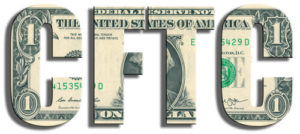CFTC Whistleblower Program has a Banner Year, but Challenges Remain

Seventy-five million dollars. That’s how much the United States Commodity Futures Trading Commission’s (CFTC’s) Whistleblower Program paid five whistleblowers – including $30 million to one, the CFTC’s largest award to date-according to the agency’s annual report to Congress for 2018. Also, for the first time, the CFTC awarded a whistleblower living in a foreign country. Without a doubt, 2018 was a banner year for the program. The CFTC’s Whistleblower Program is working as intended, and whistleblowers with specialized counsel are getting significant awards for helping the CFTC fight fraud in markets involving commodities, cryptocurrencies, futures, precious metals, and foreign-currency exchange. But while the message to would-be whistleblowers is clear – the CFTC’s Whistleblower Program is open for business – challenges in its administration remain.
The Dodd-Frank Act of 2010 established a Whistleblower Program inside the CFTC to pay awards to whistleblowers who provide information about Commodities Exchange Act violations that leads to an enforcement action in which the CFTC (or a related agency) collects monetary sanctions. Eligible whistleblowers can collect from 10 to 30 percent of such sanctions. More recently, the CFTC strengthened its authority to take action against companies that retaliate against CFTC whistleblowers and use gag clauses in employment contracts to stop employees from reporting wrongdoing to the CFTC.
In many ways, the success of the CFTC’s Whistleblower Program is plain, and the numbers speak for themselves. Since it started, the CFTC has paid approximately $87 million to whistleblowers. Such awards incentivize whistleblowers to come forward, and whistleblowers are responding at record rates. In fiscal year 2018, whistleblowers lobbed in 760 tips, a 63% increase over the prior year and a 1210% increase from 2012, the first full year after the Whistleblower Program started, when the CFTC got just 58 tips. The CFTC’s Whistleblower Office, which is the first point of contact for many tipsters, expects those numbers to keep rising.
The Whistleblower Program’s success can be gauged in other ways, too. It’s clear, for example, that whistleblowers are stitched tightly into the fabric of the CFTC’s enforcement activities. In announcing the $30 million award in July 2018, CFTC Chairman J. Christopher Giancarlo said, “[t]he Whistleblower Program has become an integral component in the agency’s enforcement arsenal.” James McDonald, Director of the CFTC’s Division of Enforcement, concurred: “Whistleblower submissions have become a significant part of our enforcement program, allowing us to pursue violations we might otherwise have been unable to detect.” The CFTC leaders’ sentiments stand in contrast to other federal agencies with whistleblower-reward programs. The Internal Revenue Service, for example, has been repeatedly criticized by Congress and others for throwing up roadblocks for whistleblowers, rather than welcoming them with open arms.
Despite the good news, a skeptic might ask whether the CFTC is moving fast enough to prevent tips from drying up. According to the annual report, the CFTC has received 366 award applications from whistleblowers since 2012. But the agency has issued just nine awards. Can it be that 97.5% of the award applications were undeserving? Timeliness is another issue the CFTC’s Whistleblower Program has to grapple with, before whistleblowers lose confidence that the CFTC will award them for the information they provide. As attorneys who specialize in representing CFTC and SEC whistleblowers, we know firsthand that the process for making whistleblower awards is far too slow. Whistleblowers provide all the information the agency requires, and then sit and wait . . . and wait . . . and wait. At some point, would-be whistleblowers might rationally decide that the uncertainty of an award, and the delay in receiving it, simply outweigh the risks of bringing quality information to the CFTC. That’s an outcome no regulator serious about fighting fraud – and making sure whistleblowers are a key part of that fight – should want.
Read More:
- The CFTC Whistleblower Program
- CFTC Enforcement Actions
- Financial & Investment Fraud
- The SEC Whistleblower Program 2018 Annual Report: Record-Breaking Year
- I Think I Have a Whistleblower Case
Tagged in: CFTC Whistleblower Reward Program, Financial and Investment Fraud, Fraud in CFTC-Regulated Markets, Importance of Whistleblowers, Statistics,